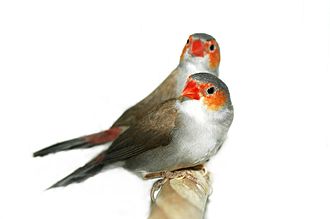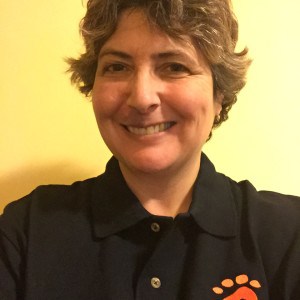Type the name of the breed you're looking for below
[wpdreams_ajaxsearchlite] Don't see the breed your're looking for? Click here and let us know!
Orange Cheeked Waxbill
| Origin | The Orange-Cheeked waxbill is a common species of finch native to western and central Africa, with an estimated global extent of occurrence of 3,600,000 km2. |
| Size | This species can grow up to 10 cm(4 in) |
| Initial Cost | Initial cost can be high, with the purchase of the aviary/cage. |
| Colours | Mostly brown with orange cheek feathers by the ears. Various shades of brown, bronze and blue may be included. |
| Lifespan | Can live 10 + years with proper care |
| Noise | Can be a little noisy when kept in groups in a large aviary. |
| Characteristics | Social, talkative birds. Due to the similarity between sexes and the constant need for companionship, it is hard to sex this species during mating season. |
| Interaction/Time Requirements, Diet, Supplies Needed | A minimum of 12 inches long, 14 inches wide, and 12 inches high. Space is important and indoor cages should be as large as possible. A large cage is required even if the bird is going to spend lots of time out of its habitat with you. Aviaries are sold ready for home assembly. Most are a rectangular design, with a mesh covered flight, and smaller shelter area, in which the birds are fed and can take shelter from the bad weather. They require a warm habitat for the winter months. Do not allow your birds outdoors until all signs of frost are gone. They feed on tiny grass seeds, which they collect from the ground or, more often, directly from grass panicles. They hang on the stems and harvest the ripe or green seeds, sometimes while hanging upside down. Small insects such as termites, aphids, and gnats are taken during the breeding season. You need to change food and water twice daily, and clean the cage at least once a day, replacing toys and broken climbing branches. These birds need interaction with their owners twice a day. |
| Other Considerations | Important to clip the claws on your birds when kept in an aviary together. |



